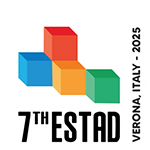Speaker
Description
Although carburization is one of the key reactions in steel production, and one for which no other elements can be substituted, coal as carbon source is used. Therefore, it is required to switch from coal to carbon-neutral materials for decarbonization. Previous research has reported that carbonaceous material with low graphitization degree and less ash has advantage for carburization reaction. Biochar, such as charcoal and bamboo charcoal, is a carbon-neutral material with low graphitization degree and low ash content. In this study, the effect of the graphitization degree of biochar on carburization behavior in the charcoal-iron mixture powder during rapid heating was investigated.
Biochar and graphite were prepared as carbon samples. To vary the carbon crystal structure of the biochar, it was heated in Ar atmosphere at 1450 degree C for 30 min. The crystallinity of the charcoal samples was determined with Raman spectroscopy. Spectra obtained by the Raman spectrometer show imperfections in the carbon crystal structure. IV/IG, the index of imperfections in the carbon crystal structure, was measured. The IV/IG values of graphite, biochar with heat treatment, and biochar without heat treatment are 0.02, 0.3, 0.4, respectively.
The experiments were carried out using a laser microscope equipped with an infra-red image heating furnace. Samples heated up to 1000 degree C in 1 minute, and then to 1500 degree C with 100 degree C/min. The experimental results showed that samples with the bigger IV/IG values tended to be well-carburized. Direct observation results during heating up indicated that the graphite sample showed a lower temperature of initial Fe-C melt formation than the biochar samples. It could be thought that the ash in the biochar sample affected the initial Fe-C melt formation.
